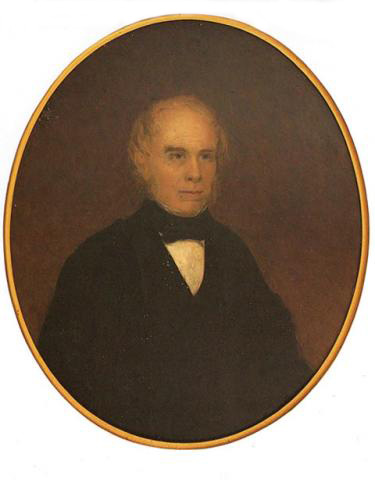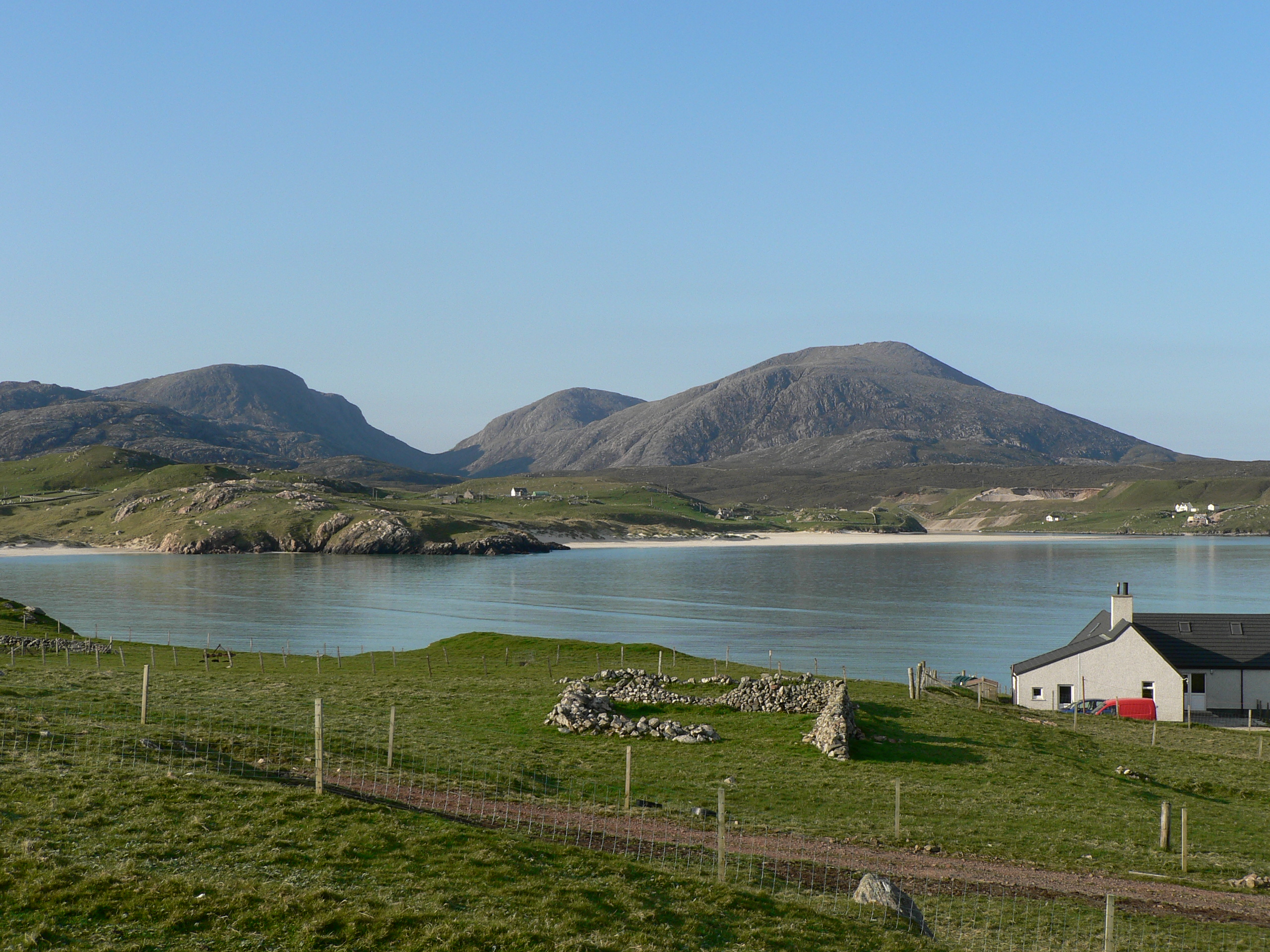William MacGillivray in Uig

The renowned naturalist William MacGillivray was born in Aberdeen in 1796 and studied and worked most of his life there or in Edinburgh, but he had a Harris connection through his father and spent much of his childhood at Northton in South Harris (where the MacGillivray Centre now bears his name). As a young man, he returned to spend 1817-1818 there, and his diaries of that period have been published as A Hebridean Naturalist’s Journal (Acair 1996). In October of 1817 he and a party of friends and relations made a journey to Uig.
Luachar, Saturday, 18th October.
Let me describe the scenery, shooting grounds, house and its inhabitants. The scenery is generally of the grand order with little or no beauty. We have a long series of lofty mountains, turning into ridges & forming deep glens. These mountains are all rugged & precipitous, they run north-east and south-west. Stretching toward the north from them are low hills and extensive plains several miles in length and toward the south higher hills & vallies. On the declivities and under the rocks are the haunts of the deer, not easily found by a stranger, but well known to the inhabitants. Loch Rezort terminates the ground of sport on the north, the ocean on the west and south, and the Lewes on the east. The whole ground is broken into little eminences & depressions, covered with heath and some other plants – at this season of the year of a yellowish or brown colour, which renders it extremely difficult to see the deer – though the broken nature of the surface facilitates an approach to them when discovered.
The house, our place of rendezvous, is situated at the distance of between one and four miles from the places of resort of the deer, at the head of an arm of the sea which constitutes part of the northern boundary of Harris. It is what in the Hebrides is denominated a black house and what Dr Johnson calls a hut. Its inhabitants are Ewen McDiarmid, a shepherd in the employment of a gentleman of Kintail who has a very extensive tract in Harris under sheep, a tough, unpolished, but honest and civil man advanced in years; his wife Christina McCaskill, daughter of Mr McCaskill schoolmaster of Uig in Lewis, a genteel woman of about thirty; little John their son, a comical cross-grained boy; two female servants, the one a clumsy lump, the other a half-idiot with only one eye.
Luachar, Thursday, 30th October.
On Sunday, the 19th, Ewen and Miss Nelly and I and little John went to Toray, a small farm two miles down Loch Rezort on the Lewis side. One of our incitements to go there was to see two children of Ewen’s who were lodged there. Here we were treated with cream and potatoes. I made a very hearty repast. The vessels which held the cream were only two in number, so the good-man and the good-woman and Ewen were placed about one, while Miss Nelly and I got the other. Had any other arrangement been made, I had been disgusted, and I could not refuse to partake of their fare without being liable to the imputation of pride. We returned in the evening.
On Monday, 20th, the weather was unfavourable for shooting, being very rainy. So I contented myself with fishing upon a lake about two miles from the house. I caught about twenty trouts. In the evening as I was sitting by the fire, half naked, and drying myself, who should come in but my uncle, Mr McG[illivray], Miss McDonald and their attendants. The Doctor had not joined the party.
On Tuesday and Wednesday we traversed the hills without success. A man from Kinrezort accompanied my uncle as guide, while I scampered along alone. They fired several shots, while I did not see a single deer. In one of my expeditions I entered the cave of Ulladil, accompanied by a servant, several plants grew in it e.g. the Common Wood-sorrel, Common Chickweed, a fern, and a moss unknown. We drank with my shoe, a draught or two of water from the well, but soon relented for it left us sickish for a considerable time.
Thursday was spent in the same way – nothing was shot by either party – Mr McCaskill came over to see his daughter & niece.
On Friday, the 24th, we all left Luachar, with the intention of going to Uig. About two miles from the house, we observed a small herd of deer, consisting of five. Little worthy of remark occurred till we reached Timisgarry in Uig – on the west side of the Lewes, and about twelve miles from Luachar. The day had been tolerably good, but the road was very rugged. Hills and glens and lakes compose the whole scenery – not a blade of soft or meadow grass was seen in the whole route. After dining in Mr McCaskill’s we were visited by two ladies of the minister’s family who invited me to drink tea with them. This invitation was of course accepted. Mr Hugh Munro is an old man of clear complexion, sub-sickly, sub grave phiz, not very robust habit. He wears a white cotton nightcap – aye – even in the pulpit. His two daughters are accomplished girls. Katherine is on the list of old maids is said to have been beautiful. I deny this. Her lips are thin as paper. It is verily queer that the Hebrideans should esteem thin lips and linear eyebrows as beautiful. As to my own opinion on the subject – Oh! by the powers! rosy checks and pouting lips. Marion has a genteel figure, an excellent face, with a nose of taste, and a mouth of eloquence!
On Sunday we went to church [at Baile na Cille old church]. The kirk is a thatched house, without regular seats, and having a most miserable pulpit composed of a few fir sticks. I did not see a good female face in the congregation. Mr Munro, honest man, is but a lame preacher – in good sooth I thought he was but a man of mean parts when I first saw him.
Dined and drank tea in his house. Master Alexander Simson, who had come here last evening, conducted himself with great politeness, while I, poor booby! sat sulky in a corner – and why? because I could not relish the conversation. lt consisted of scandal – A minister’s house, Sunday evening, a professed Christian servant of God, light conversation, scandal, strangers – these cannot be reconciled.
Monday proved boisterous and we kept the house all day. In the evening I drew two flounce patterns for the Munroes.
On Tuesday, the 18th left Uig – After travelling upwards of a mile we took a boat, and rowed up to near the head of Loch Rog, where we entered a shepherd’s house. Mrs MacNaughton, the good-wife treated us with warm milk, potatoes and cheese. She is a most excessively kind woman – Master was not at home. It now rained most mercilessly. From the head of Loch Rog, we travelled about four miles to Luachar over a very wet and soft flat. In this course we saw a Red Grouse, a Woodcock, and a Water Rail. The latter was found dead – We reached Luachar in the dusk, weary and wet. Miss MacDonald had a headache.
Yesterday we slept till ten. The day was good, but as the ladies were fatigued we did not set out for Northtown. I learned that my Water Rail had been killed by a child some days ago, and left on the moor. Rory of Kinrezort killed two deer for us, a very fine stag & a small doe. About twelve o’clock Mr MacNaughton, who had come after us today, accompanied us to the hill. But we saw no game, and returned about sunset. In the evening I recited some poetry to Miss MacDonald in the little house – Mrs Mary was snoring for part of the time. This was the first time I had completely broken that sulkiness which had oppressed me for upwards of a week[…]
Sunday, 2nd November, 1817
We have been kept here by the badness of the weather. On Wednesday night when in bed we had three very vivid flashes of lightning accompanied by the most terrific peals I ever heard. On Friday & Saturday, I traversed part of the shooting ground without success. Yester evening I heard two sublime peals of thunder – The pleasure they afforded was of a nature not entirely new to me. Every awful object in nature yields sensations resembling this. Our situation has become disagreeable – a dirty and smoky house, conviction of having become troublesome, bad humour, want of books & in fact of any suitable employments render the time tedious. Eagles are very numerous here. The Snow Bunting is frequently met in the hills in small flocks. I am told they are never seen in summer. I have seen the Woodcock several times – and my uncle saw another of the Water Rail kind. The weather has been boisterous with much rain and hail for upwards of a week – the mountains are tipped with snow. At Luachar is a good fishing stream; twenty barrels of salmon being caught each season upon it. The lakes in the vicinity are well stocked with trout. The salmon trout (sea trout) abounds. Ptarmigans are found in the hills. The Water Ouzel (Dipper) I saw upon the river – Ducks of different kinds, Scarts, gulls and Herons frequent the loch.
The party finally got away from Luachar on Monday morning and went by sea, still in boisterous weather, to Miavaig (Harris) and Luskentyre, where they put the terrified ladies ashore and proceeded to Northton, returning the next day on horseback to recover the ladies.
MacGillivray’s uncle, with whom he was staying in Northton, was married to Mary McCaskill, a daughter of John McCaskill who is mentioned above and who was the first school teacher in Uig. The schoolhouse was Taigh Sgoile Chiosamuil, near Baile na Cille, and John and many of his family later emigrated to Cape Breton. MacGillivray himself married another daughter, Marion (though not necessarily the Marion he admires here, as it’s not absolutely clear that this is the other sister present, and William’s diaries are full of swooning admiration for another Marion of his acquaintance). The McCaskills were also related to the minister Hugh Munro: Hugh was married to Janet McCaskill, believed to be the sister of John the schoolteacher, and John’s first wife was Christina Munro (relation unknown, by us at least, but likely). They were all Skye people originally.

